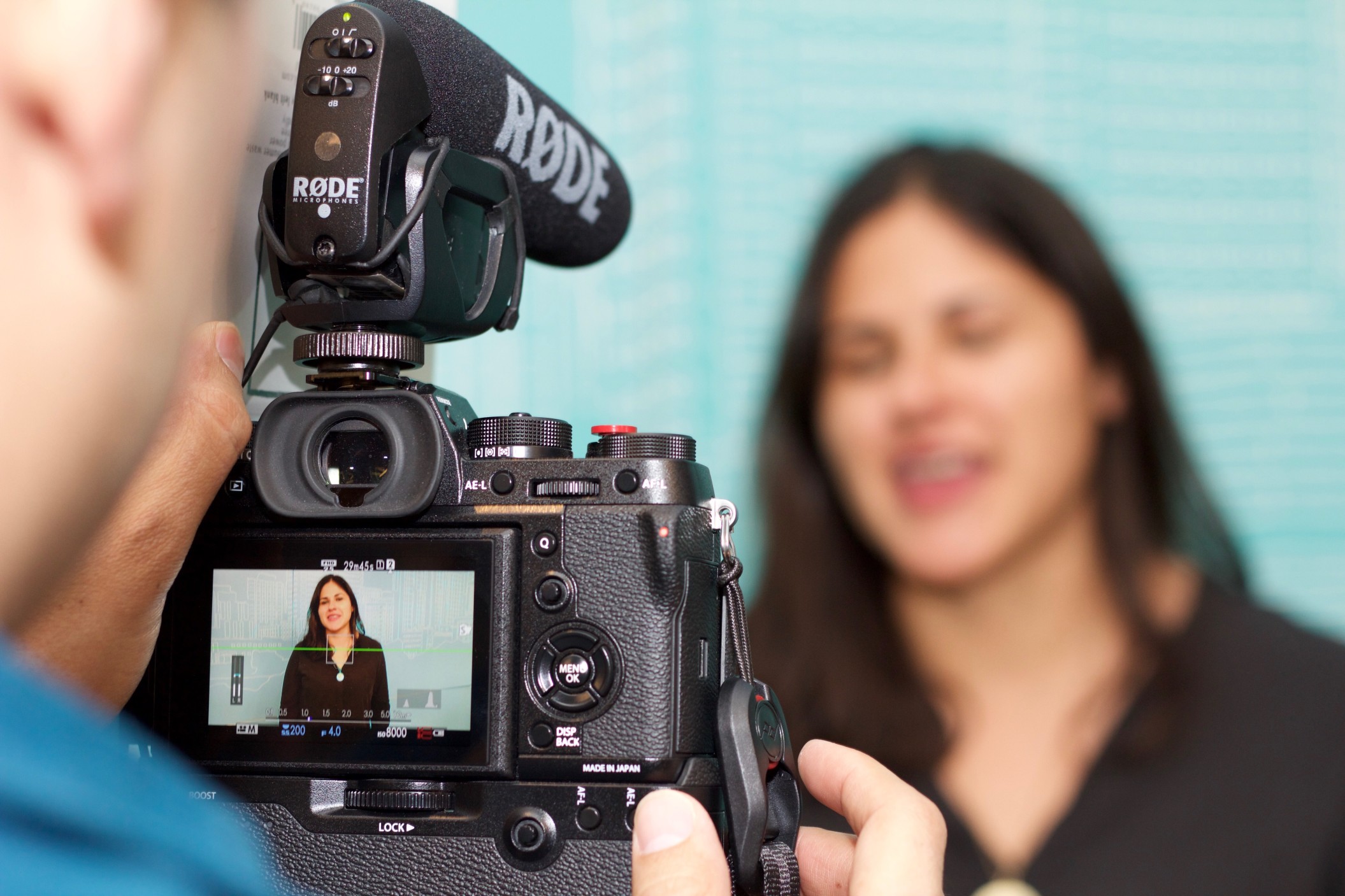
Not everyone jumps for joy when they find out they’ll be speaking or interviewing on camera; for some people, the sweaty-palm effect is an instant reaction to the thought of, “…and we’re rolling.” But if you’re a spokesperson for your company, I don’t recommend avoiding an on-camera interview. A TV interview can boost your brand and highlight you as an expert in your field in an impactful way – a way that small quotes in an article just can’t match. And in today’s video-centric world, getting comfortable with the camera is a valuable skill.
But of course, being confident and articulate on camera takes practice. Few people are “naturals,” and you can take comfort in the fact that it is a learned skill just like anything else. If you aren’t a video rockstar on your first try, no need to dig a hole and hide. We’ve all had awkward moments, but the more you practice, the more comfortable you become in front of that lens.
So grab a friend, grab a camera and get practicing! Work on these skills and you’re well on your way to becoming a star interviewee:
Practice your breathing. Ever wonder why your voice goes up an octave and almost seems to shake when you get nervous? It’s all about your breath. As intelligent as most of us are, when we get nervous, we forget to breathe. (They didn’t teach you that in grad school?) And when I say we forget to breathe, I mean we stop taking full, deep breaths. As a result, your voice sounds unsupported, shaky, high-pitched and awkward. So practice slowing down and taking full, deep breaths between thoughts. This will help your vocal quality sound strong and confident – and you, in turn, will come across the same way. Taking time to breathe also forces you to slow down in between phrases, which gives your audience more time to absorb what you’re saying. Deep breathing even slows your racing heart. It’s a win-win-win!
Practice your gaze. Ninety-nine times out of one hundred, you will NOT be looking into the camera during your interview. So unless you’re asked to, just don’t do it! Not even a glance! Everything on camera is exaggerated, so if you flicker your eyes toward the camera for half a second, it reads in a big way and makes you appear nervous. You will most likely be speaking to an interviewer who is just next to the camera, and you will direct your gaze to that person. The best thing you can do is pretend the camera isn’t there, and talk to the reporter like you would in any real conversation. Make eye contact with them often, but feel free to break that eye contact on occasion. Real people sometimes look slightly away when they’re forming a thought or explaining something, and that’s okay. We want you to look like a real person, not a robot. But do not, I repeat, DO NOT glance awkwardly into the camera. What camera? Exactly. It isn’t there.
Practice your body language and posture. Your body might want to tense up on camera and all of a sudden you’ve got that Ricky Bobby, “I don’t know what to do with my hands,” Syndrome. But never fear. You’ve been sitting, standing and talking almost your whole life! Rest assured you know how to do it. If it helps, take the time in your day-to-day conversations with friends and co-workers – notice how you like to sit, notice where your hands fall, notice how your body is most comfortable – and try to recreate that on camera. Or better yet, just let it happen. The only adjustment I suggest is to sit up straight if you’re a natural sloucher, so you don’t come across as lazy or lacking in confidence. Other than that, just do you!
Practice your messaging. It’s easy to get bogged down with what you’re going to say in an on-camera interview, and if you don’t feel confident with your answers, it will start to translate to your voice and your body. It’s an easy way to crash and burn. But it’s totally avoidable! Boil your key messaging down to several main points, and be sure to know your objective with the interview. Do not ramble or go off on too many tangents. Answer questions succinctly and clearly. (Even practice a sample Q&A beforehand!)
Practice not caring (TOO much). Most importantly, practice not taking yourself so seriously. Your three-minute interview is probably not as life changing as you think. And if I’m being horribly honest, most viewers will not be agonizing over your stumbled words or nerdy laugh a week from now or even an hour from now, so try not to beat yourself up too much. As someone who has made a complete idiot of herself on stage and on camera countless times, I can tell you it’s never the end of the world. Your audience will move on with their day and you will live to tell the tale.
So go forth and practice! I promise it will all become less scary and less awkward every time you try it out. Be yourself, breathe, know your stuff and enjoy your moment in the spotlight! It might even be … fun?

Comments